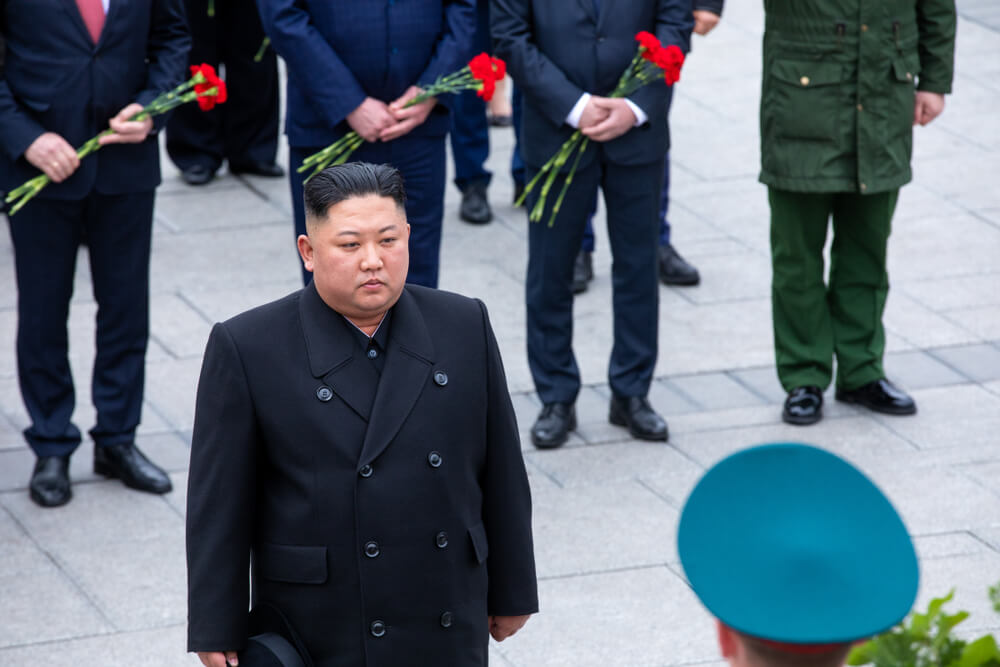The exchange of several favourable messages between Tokyo and Pyongyang in a short period in recent months has raised expectations of a possible meeting between Japanese PM Fumio Kishida and North Korean leader Kim Jong Un.
If the meeting takes place this year, it will be the first time in 20 years since Prime Minister Junichiro Koizumi and North Korean leader Korean Kim Jong Il have met.
The North Korean leader was the first to blink when he unexpectedly offered condolences to Prime Minister Kishida last January following the devastating earthquake that struck Ishikawa Prefecture on New Year's Day.
PM Kishida responded favourably, stressing the need for the 2 countries to improve their relations. Then, the powerful sister of North Korean leader Kim Yo Jong joined the communication, supporting the thawing of relations with Japan, throwing into play the possibility of a summit between the 2 leaders.
Both countries want a summit
Both sides want this meeting, and this is the best chance for it to happen.
With this sudden initiative, Kim is not risking anything internally, and he could gain a lot, primarily the possibility of financial and economic benefits.
Also, the North Korean leader hinted that with potential talks with the Japanese PM, he wants to open a new cycle of his diplomatic opening, as he previously had in 2018-2019, when Kim met with several leaders from the region, but also with the then US President Donald Trump, he hopes would return to the White House.
On the other hand, the Japanese government is responsible for pacifying North Korea's permanent military threat through direct dialogue.
While bilateral interest exists, the obstacles standing in the way of a Japan-North Korea summit might be even greater
PM Kishida is interested in this dialogue also because of the issue of Japanese citizens abducted by North Korea during the 1970s and 1980s. Japan views this as not yet resolved.
This heavy political burden is placed on the backs of every Japanese government. The question of the 17 abductees remains unresolved, despite Pyongyang's insistence that it is a done deal for them.
While bilateral interest exists, the obstacles standing in the way of a Japan-North Korea summit might be even greater and arise from the interests of third parties.
Kim is encouraged by the easing of isolation
Pyongyang's sudden and pronounced inclination to thaw relations with Japan originates, on the one hand, from the feeling at the leadership level of North Korea that it is no longer isolated to the extent it was before and that due to its strengthened partnership with China and especially Russia, it could undertake diplomatic actions towards the "enemy" block.
Kim feels encouraged by the new circumstances, above all by the strengthened partnership with Russia, from which he earns a lot through arms exports, and by China's strained relations with the West, where he positions himself as a faithful ally of Beijing.
Hence, the justification of many questions about the true motives of the North Korean dictator relaxing relations with Japan.
The greatest doubt is expressed regarding his possible intention that by rapprochement with Tokyo, he wants to weaken the strategic alliance of the US, Japan and South Korea, strengthened by last year's tripartite summit in Camp David.
Kim relies on the support that the US provides to all its allies, including Japan, to conduct a dialogue with North Korea to de-escalate tensions in the region
South Korea warned about this particular motive. They regard it as Kim's desire to take a detour, using the thawing of relations with Japan and simultaneously bypassing Seoul to reach a position to make direct agreements with the US as the ultimate goal.
The fact that Kim announced last January that he abandoned the unification project with the South, marking South Korea as the "number one hostile state", goes in support of such concerns of Seoul.
At the same time, Kim relies on the support that the US provides to all its allies, including Japan, to conduct a dialogue with North Korea to de-escalate tensions in the region.
“We are open to dialogue with the North Koreans without preconditions and so I think that would also apply to our like-minded partners and our close allies," said Julie Turner, U.S. special envoy on North Korean human rights issues in Tokyo in mid-February.
Tokyo will wait for Seoul's support, but not for too long
The government in Tokyo and PM Kishida will not enter into a dialogue with Pyongyang, ignoring the positions of the US above all, but also of Seoul, given that they have managed to overcome all significant obstacles so far.
However, Seoul has recently cancelled an unofficially announced meeting between PM Kishida and South Korean President Yoon Suk Yeol scheduled for March 20.
Even though the meeting was mostly unofficially announced through the media, the 2 leaders should have discussed a potential Japanese-North Korean summit.
 PM Kishida might do what Kim Jong Un wants if he attended the summit without Seoul's support
PM Kishida might do what Kim Jong Un wants if he attended the summit without Seoul's support
Since those partnership consultations will not happen as expected, it is unlikely that they will be postponed for a short term (Seoul assures that they could be held at any time), given that South Korea is holding parliamentary elections in April.
This reduces the likelihood of an imminent meeting between Japan's and North Korea's leaders because PM Kishida might do what Kim Jong Un wants if he attended the summit without Seoul's support.
However, an opening on the Tokyo-Pyongyang route is already on the table and cannot be ignored for too long.
South Korea's sense of neglect and concern, while valid, cannot be an impediment to conversation for too long, as Western partners seek, above all, the pacification of North Korea's militant leader.